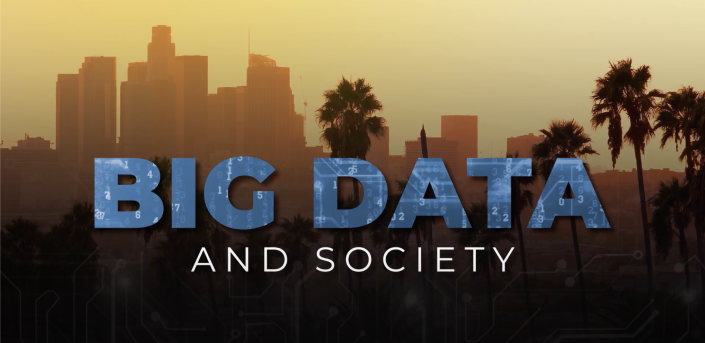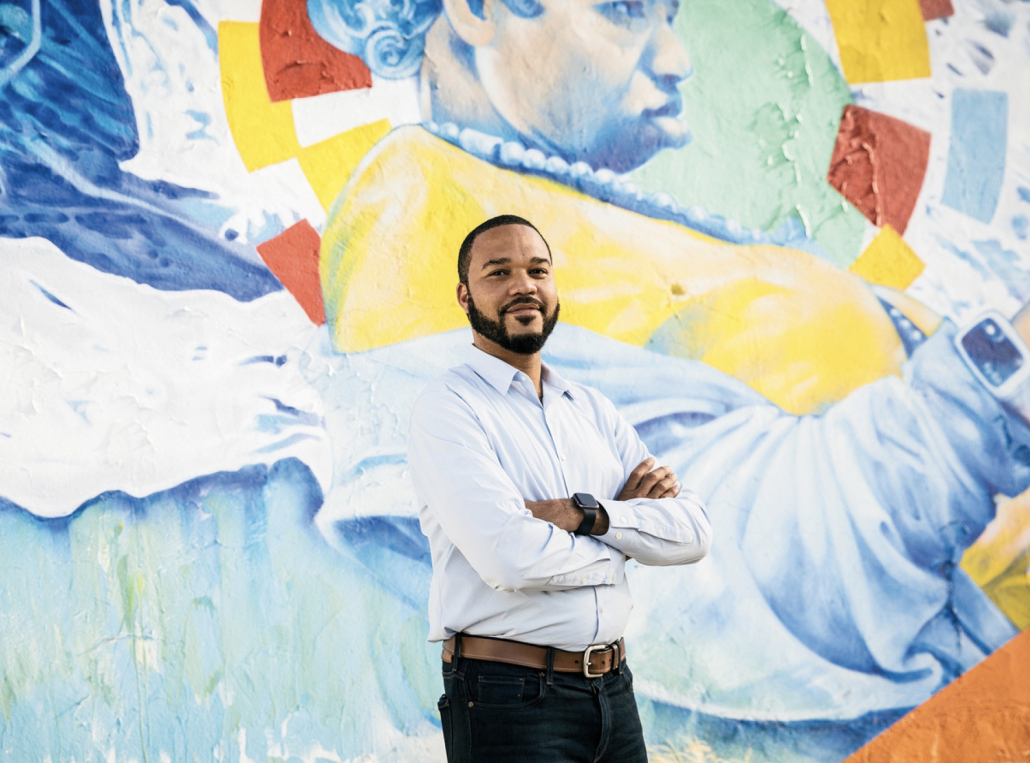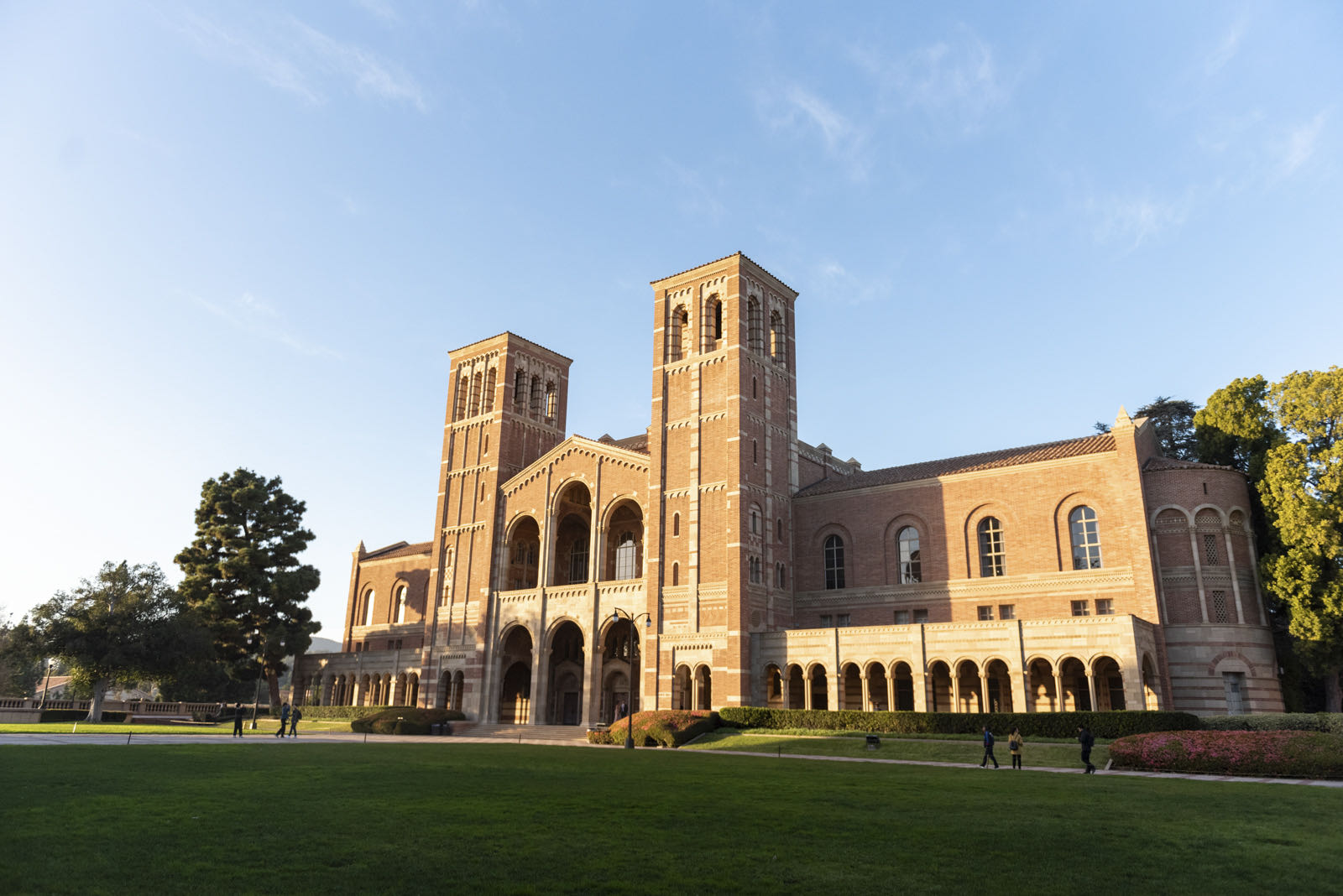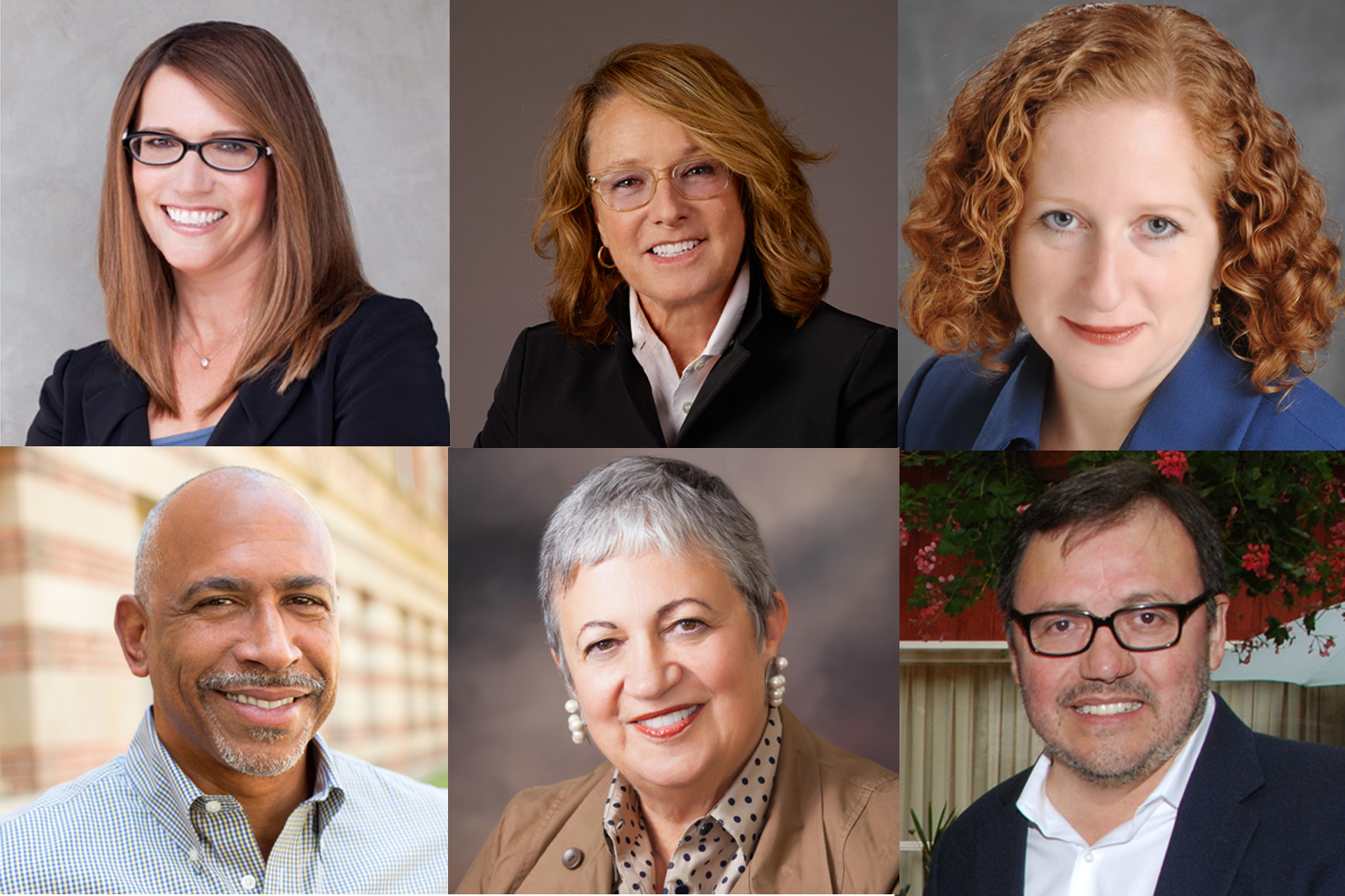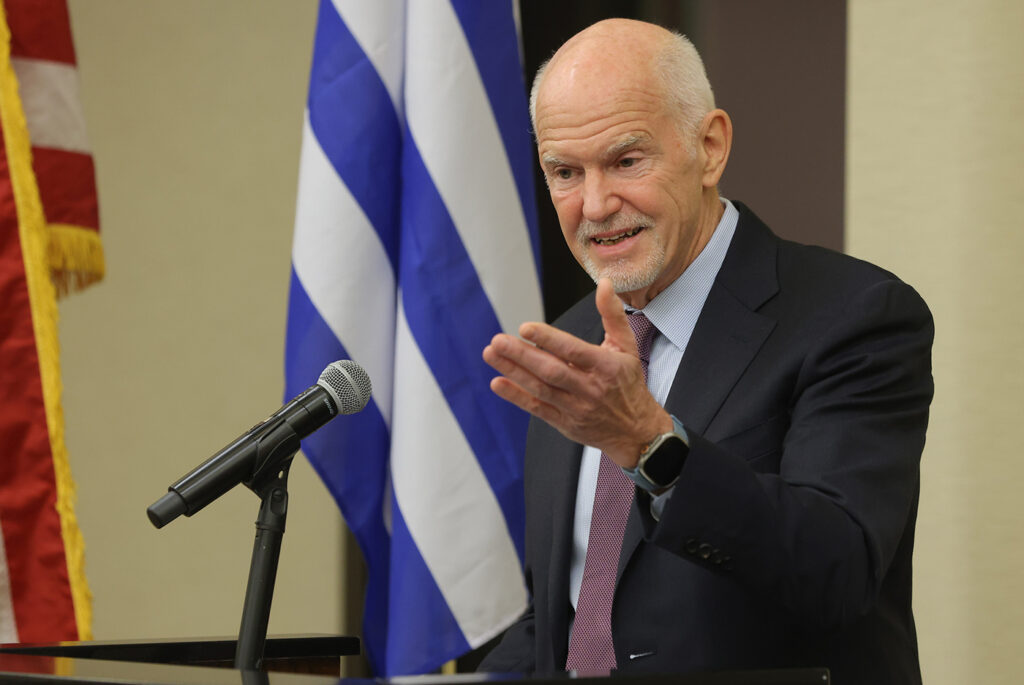
Advancing democracy, said former Greek prime minister George Papandreou, means opening our imagination and being open to new ideas. / Vince Bucci Photography
Sean Brenner
Drawing vivid comparisons and contrasts between democracy’s standing in the world today and its origins in ancient Greece, George Papandreou outlined a vision for preserving and protecting citizens’ role in governance amidst a global rise in authoritarianism.
Papandreou, who served as Greece’s prime minister from 2009 to 2011, spoke Jan. 22 at the UCLA Luskin Conference Center. He proposed the need for a “new democratic social contract.”
“If democracy is under siege, we must not merely defend it; we must reimagine it,” he said. “The challenges of climate change, inequality and technology demand innovation in governance.”
Papandreou, whose father, Andreas, and grandfather, Georgios, both also served as prime minister of Greece, enumerated a series of measures he said could help strengthen democracy. Among them: banning unlimited corporate donations to lobbyists, restoring democratic education in public service media, introducing wealth taxes on billionaires and requiring full transparency in political advertising.
“These are some ideas,” Papandreou said. “But politics in the way the ancients taught it was not what we have today, with polling, tweeting, soundbites and looking for donors. It was actually to expand their imagination of a better future. The ancient Greeks said, ‘We don’t need tyrants to tell us what to do. We don’t need monarchs or kings or high priests. We can decide our future. Therefore, we can imagine a better future.’
“So politics, which means being a good citizen, means that we can collectively think of a better future.… Let’s open our imagination. Let’s be open to new ideas.”
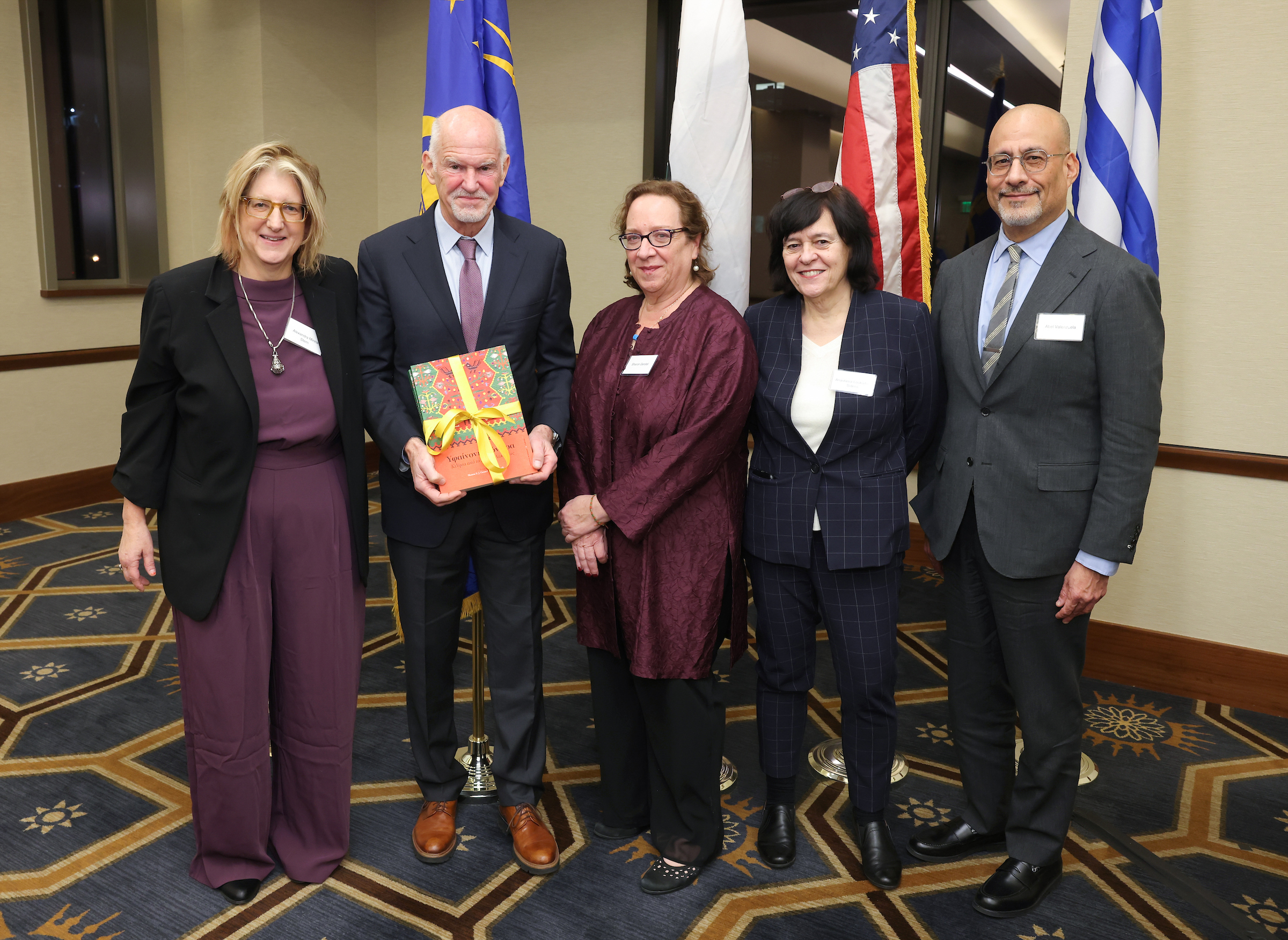
Papandreou (second from left) with Dean Alexandra Minna Stern, Professor Sharon Gerstel, Interim Dean Anastasia Loukaitou-Sideris and Dean Abel Valenzuela. / Vince Bucci Photography
Papandreou opened his talk with an expression of sympathy for Angelenos who have been affected by the wildfires.
“I stand here before you with a heavy heart, as in recent days you have witnessed the horror of entire neighborhoods reduced to ash, lives uprooted, dreams turned to smoke,” he said, relating the experience to his having witnessed severe fires and floods destroy homes and natural habitats in Greece. “No words can truly capture the anguish of watching the place you call home disappear in flames.”
The talk was organized by the UCLA Stavros Niarchos Foundation Center for the Study of Hellenic Culture, and sponsored in part by the UCLA College Division of Humanities and Division of Social Sciences, and the UCLA Luskin School of Public Affairs.
In her opening remarks, Sharon Gerstel, the SNF Center’s director, praised Papandreou as a “public servant associated with change, transparency, social justice, resilience and democracy.” And she highlighted the role of the SNF Center — now in its fifth year — as a nexus for intellectual and cultural programming based in a city that boasts a large and dynamic population of Greeks and Greek Americans.
Gerstel presented Papandreou with Greek and English versions of Weaving Dreams: Kilims from Geraki, Laconia, a book she co-edited that examines the history of textile art in the Greek village of Geraki.
Anastasia Loukaito-Sideris, interim dean of the School of Public Affairs; Alexandra Minna Stern, dean of humanities; and Abel Valenzuela, dean of social sciences, also offered brief comments. Among the dignitaries in attendance were Christina Valassopolou, consul general of Greece in Los Angeles, and Andreas Kyprianides, honorary consul general of Cyprus in Los Angeles.

